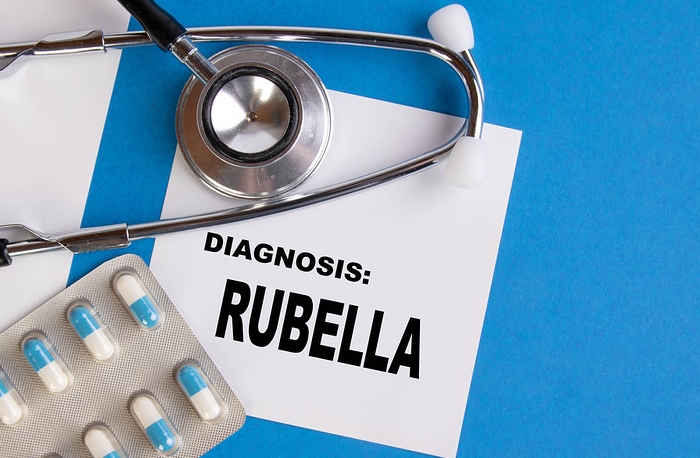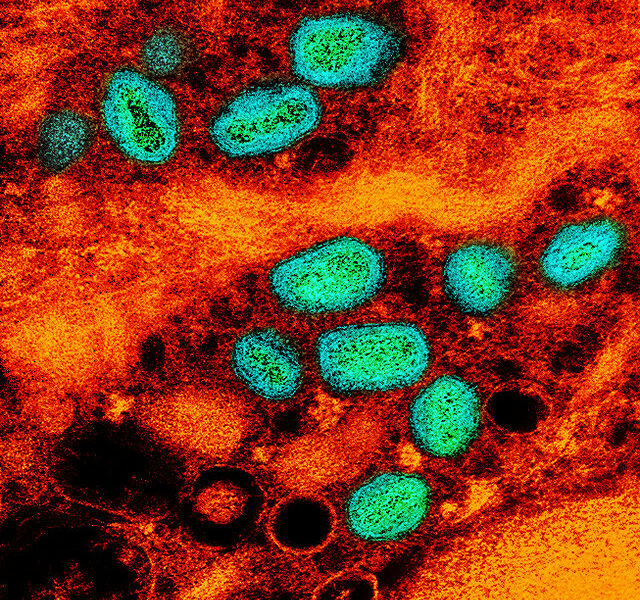By: Autumn Gertz
Image courtesy of Marco Verch via Flickr Creative Commons
On February 21, the initial report of an acute Rubella case in Ireland was released [1]. This is the first reported case of acute Rubella in Ireland in eleven years, with the last confirmed case occurring in 2009 [2]. The case allegedly presented with the characteristic rash on January 28, though many other details around the case are not being shared for privacy reasons [1,3,4]. The Health Service Executive’s Department of Public Health-South (HSE) had commented that the case is in the Cork city area, and a multinational company located on the north side of the city had been informed of potential close contact with the case [3,4]. However, on February 25, it was reported that the multinational company is Apple, and the affected location is Hollyhill campus in Cork, which has thousands of employees [5].There is some speculation this could be an imported case, meaning it did not originate in Ireland but was detected there, as Rubella is a reported disease in Ireland [1,3].
The HSE was notified of the case over recent weeks and has taken precautionary measures [3]. The HSE Director, Augustine Pereira, stated that suspected contacts of the case have been given guidance and General Practitioners in the Cork area have been asked to conduct active surveillance for secondary cases [3]. Additionally, General Practitioners are advising unvaccinated patients born after 1978 get the MMR vaccine, that vaccinates against Measles, Mumps, and Rubella; which will be available free of charge [3,4]. The MMR vaccine is the best protection against Rubella, as there is no specific treatment [3,6].
Rubella, caused by Rubella virus, is also referred to as German Measles and causes mild disease in adults and children, but can be dangerous for pregnant women [3,6]. Most cases present with low-grade fever, sore throat, and a rash that starts on the face and spreads to the rest of the body [6]. Congenital rubella occurs when a pregnant woman is infected and can lead to miscarriage or serious birth defects including heart problems, loss of hearing and eyesight, intellectual disability, and liver or spleen damage [6]. Rubella is transmitted person-to-person through droplets from coughs and sneezing, or vertical transfer from mother to fetus [6]. Most people are infective, and can spread Rubella for up to one week before they present with symptoms [6]. However, 25-50% of infected individuals never present with symptoms, including the characteristic rash [6]. Those who are vulnerable to Rubella are also vulnerable to Measles and Mumps, as they share a vaccine [6]. This is important as Ireland is currently experiencing a Mumps outbreak [1].
A Cork HSE Immunization Steering Group representative, Dr. Nick Flynn, stated he is diagnosing two to three cases a Mumps weekly [1]. The Mumps outbreak and this Rubella case indicate the importance of vaccination, and possible failure of vaccine coverage [1]. Vaccine hesitancy is also a problem in Ireland, with one survey showing Irish people have a lower than average belief that vaccines are safe [7]. This survey found that 74% of Irish people expressed trust in vaccines, which is 5% lower than the global average of 79% they found [7]. Similar to the United States, reasons for vaccine hesitancy include philosophical reasoning, poor education, religious beliefs, and misinformation [7]. The same methods and anti-vaccination campaigns that have caused vaccine hesitancy in the US are directly affecting beliefs and attitudes in Europe as well, including Ireland. As vaccine hesitancy continues to persist in various countries, cases of vaccine-preventable-diseases will need to be monitored to ensure these diseases do not re-establish themselves in areas where prevalence has been low due to mass vaccination efforts.
References
[2] https://www.thejournal.ie/rubella-ireland-confirmed-5021175-Feb2020/
[5] https://www.rte.ie/news/munster/2020/0225/1117520-rubella-cork/


